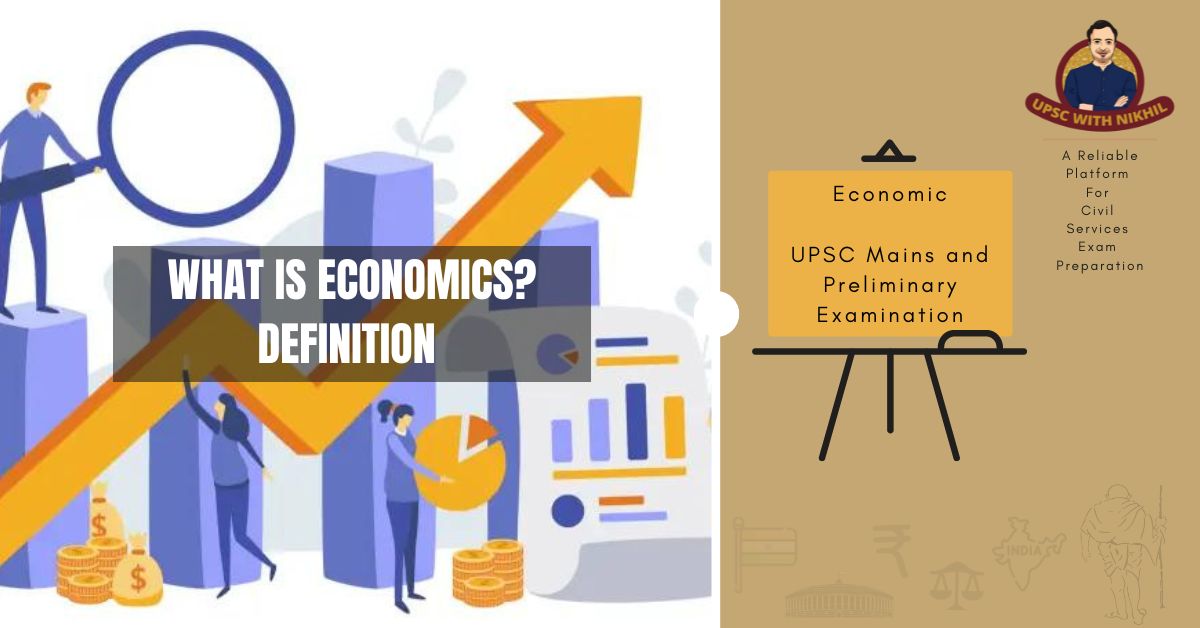What Is Economics? Definition
Economics is a social science that studies how products and services are produced, distributed, and consumed. It investigates how individuals, corporations, governments, and nations allocate resources to meet their demands and requirements, as well as how these entities should organise and coordinate their activities to maximise output.
Deductive techniques, such as mathematical logic, are frequently used in economic analysis, where the consequences of individual human behaviours are analysed in a "means-ends" framework. Economics is the study of how people, both individually and collectively, allocate scarce resources for production, distribution, and consumption. Economics is also known as the "Science of Scarcity" because resources (physical, human, and monetary) are finite. Individual and firm behaviour are studied in microeconomics. Macroeconomics examines aggregates at the regional, national, and global levels.
Economics is particularly concerned with production and exchange efficiency, and it use models and assumptions to figure out how to design incentives and policies that optimise efficiency. Economists create and publish a variety of economic indicators to aid in the analysis of the economy. Investors can use these to predict how economic conditions would affect markets and make investment decisions. Economics is concerned with the activities and interactions of economic agents as well as the functioning of economies.
ECONOMIC AGENTS
An economic agent is a person, company, government, or other entity that makes economic decisions such as purchasing, selling, and investing. Economic agents have an impact on economic indices, while economic indicators have an impact on economic agents. In other words, economic agents are persons, institutions, or groups of institutions who, via their rational acts and judgments, contribute to any economic circuit. Regardless of their responsibilities in the production, investment, or consumption circuits, economic agents form critical economic relationships with one another.
The following are three common instances of economic agents:
• The state/government is the entity that makes decisions about consumption, investment, and economic policy; the state frequently regulates or supports the economic actions of other economic actors.
• Households—who, based on their income, make decisions about how much they spend on goods and services and how much they save.
• Companies that make decisions about investment, production, and employment.
A closed economy includes these three agents and financial institutions. However, in an open economy, it is becoming increasingly vital to consider a fourth agent: outside regions with which the other economic agents do significant business.
The relationship between production, trade, and the supply of money in a country or region is referred to as the economy. When economics is applied to geography, the result is Economy. As an example: The Indian economy, the British economy, the Southeast Asian economy, and so on. Economic, without the "s," is an adverb that means "related to the economy." On the other hand, the term "economical" has a figurative sense of "not requiring too much of something" (such as money, space, time, etc.)
FACTORS OF PRODUCTION
The inputs utilised in the production of goods or services in order to create a profit are referred to as factors of production. They include every resource required to create a product or service. All production factors are divided into four categories.
LAND
LABOUR
CAPITAL
LABOUR
CAPITAL
ENTREPRENEUR
Factor Costs are the costs incurred as a result of using the factors of production. For those who provide Factor Services, these costs become revenue.
|
FACTOR OF PRODUCTION |
FACTOR COSTS/INCOME |
|
LAND |
RENT |
|
LABOUR |
WAGES/SALARIES |
|
CAPITAL |
INTEREST |
|
ENTREPRENEUR |
PROFIT |


